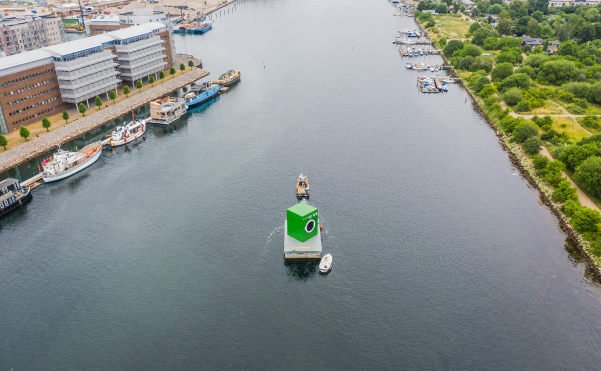
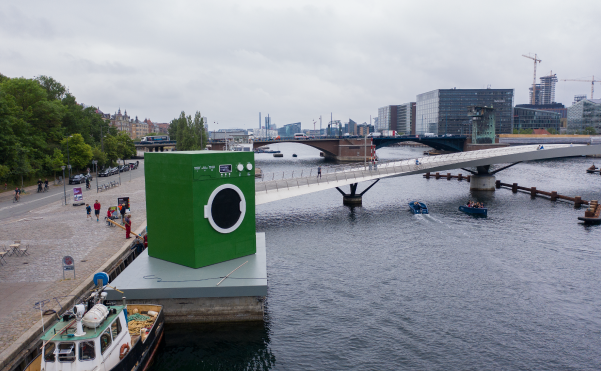
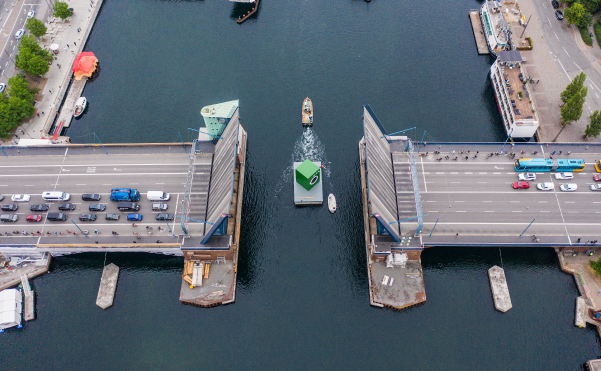
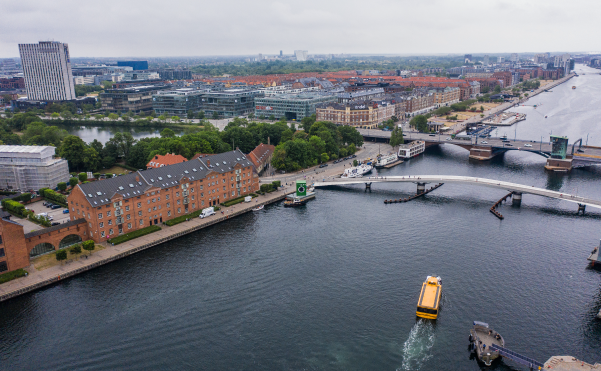
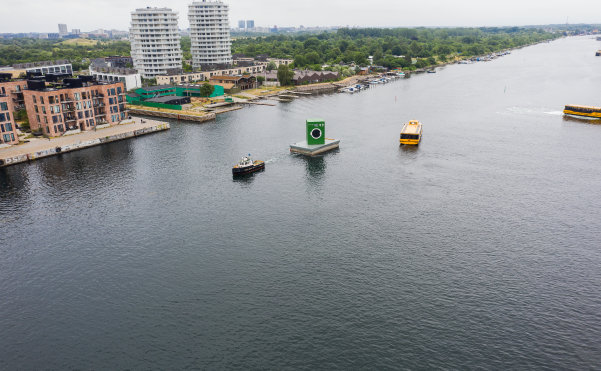
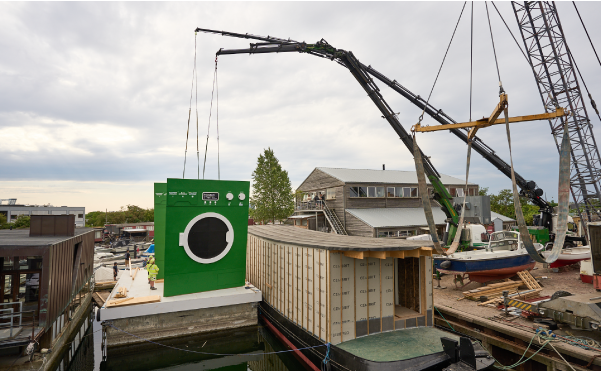
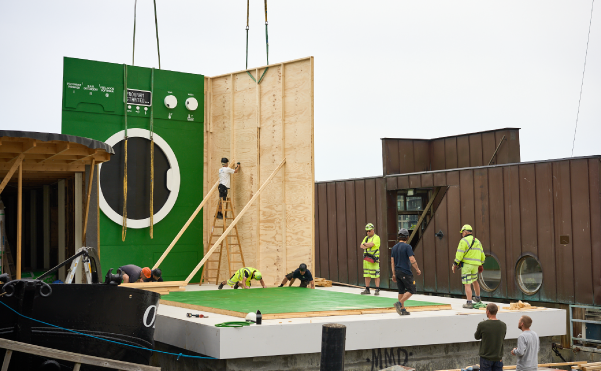
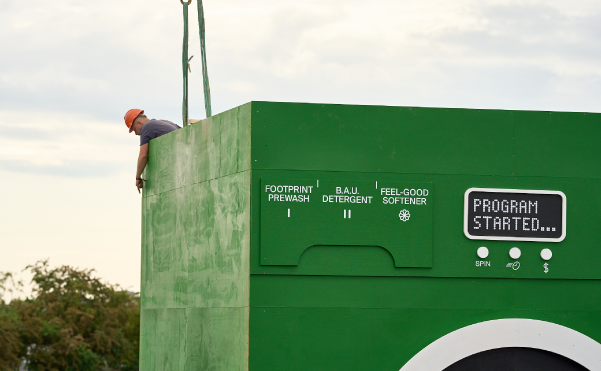
This is the story of “one man’s trash…” The OBEL AWARD has rescued a concrete barge otherwise slated for demolition and uses it to highlight a global challenge during the World Congress of Architects (UIA) in Copenhagen in July 2023. After the UIA, the barge will be retrofitted to become a space of learning for architecture students.
The floating unPAVILION is a statement piece that points to the counterproductive nature of greenwashing in our current environmental crisis. The washing machine sitting on an old concrete barge represents the business as usual scenario: ignoring or explaining away our harmful activities, while sea level rises due to those same activities force us further adrift.
Greenwashing comes in many forms, some even unintentional. It can be about cherry-picking facts or not relying on facts at all; it can be about emphasising certain aspects and ignoring others, focusing on irrelevant things; it can be vagueness, hidden trade-offs, narrow scope. Or it can be about becoming complacent after having once made a positive impact. But instead of pointing fingers at current practices and products, the OBEL AWARD wants to encourage ambitious, cross-disciplinary ideas that do not just provide a temporary or small-scale fix. The world needs wholly new, collaborative approaches, ideas based on facts, and inventions that reckon with the big picture.
“Obviously, architecture is not an observer but an agent in the causes of climate change. Therefore, architecture has got to be an agent, too, in fighting climate change. Architecture must be a driving force in eliminating all CO2 emissions from the built environment”.
Excerpt from statement of the OBEL AWARD jury
The unPAVILION is part of the OBEL AWARD’s attempt to explore new perspectives, prompt curiosity and debate, and change mindsets. The OBEL AWARD is an international award that promotes architecture in the service of both people and the planet.

